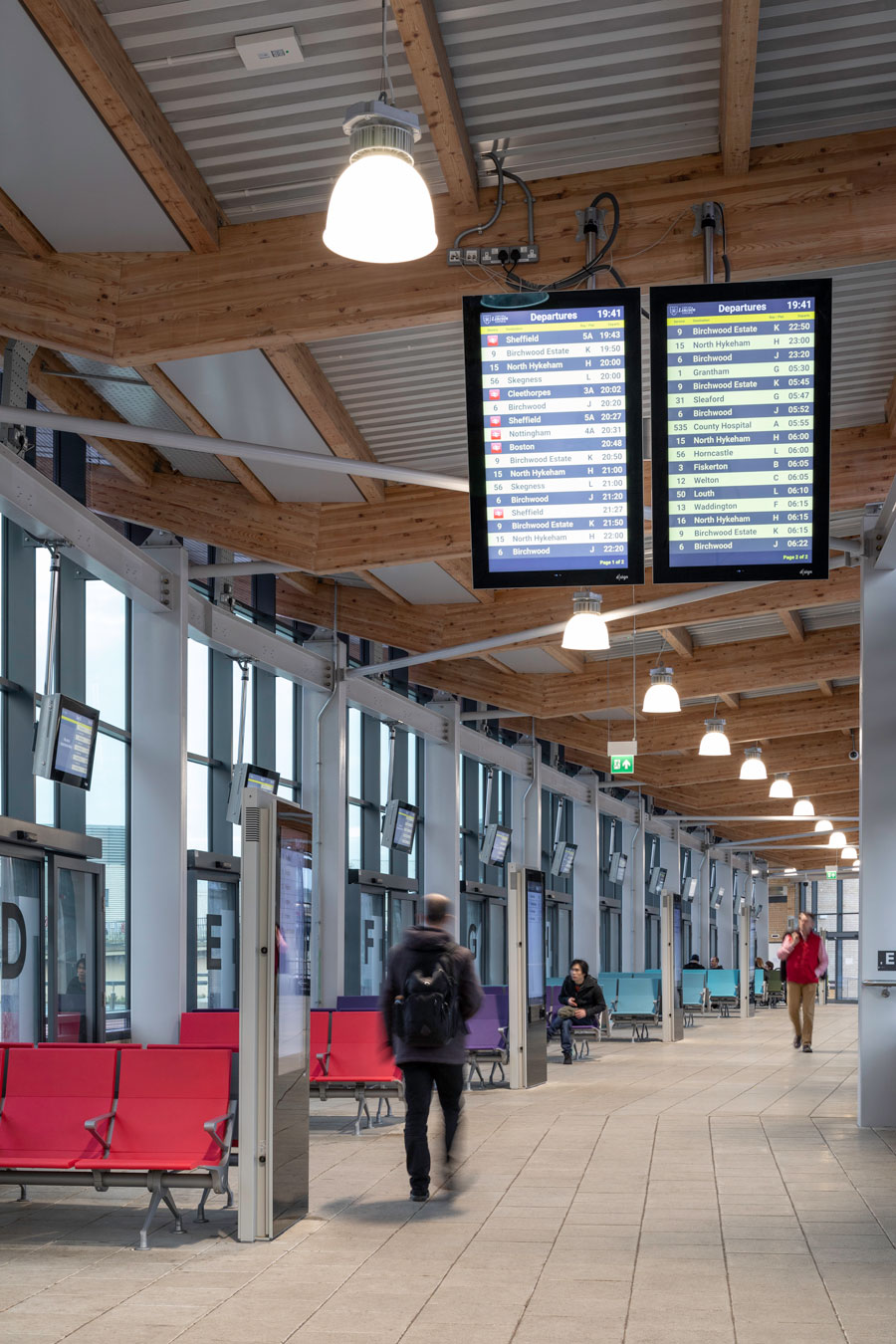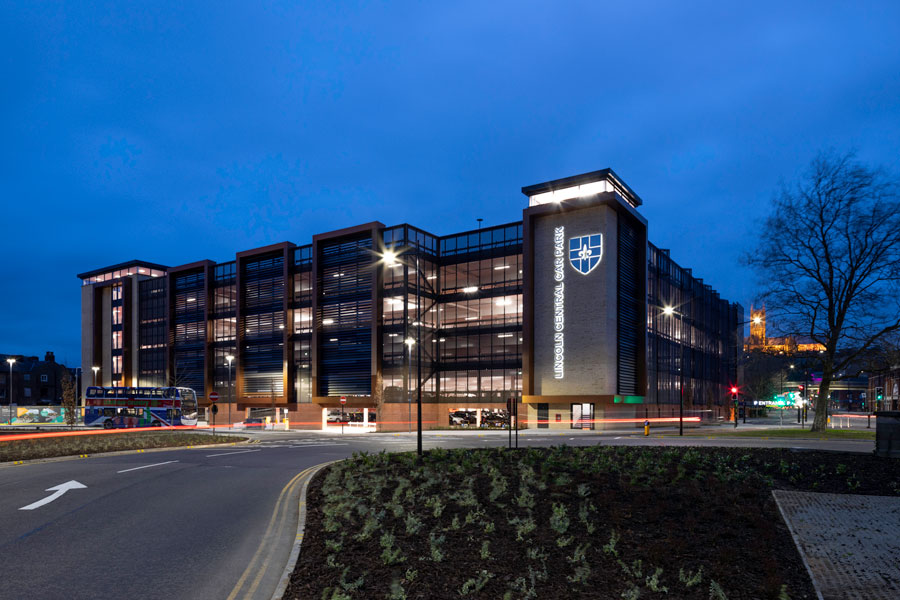A city’s transport links are essential to the wellbeing of its residents, visitors, and businesses.
That’s why the city of Lincoln relied on Derry Ltd’s mechanical and electrical engineering expertise to ensure the success of its new £30 million transport hub – part of a city-wide regeneration project.


Our Everest of cabling
15,000 bricks later and comprising enough concrete to fill four Olympic-sized swimming pools, the hub is now complete, and breathing new life into a run-down area of the city.
The bus station, 1,000-space car park, retail space, and pedestrian plaza that make up the hub are improving ease of access for everyone who lives in, works in, or visits Lincoln. But they’re also offering a modern travel experience more fitting of an aspirational city.
As part of its role in ensuring the project’s success, Derry Ltd used 100,000 metres of cable – equivalent to the distance from the bottom to the top of Mount Everest – to cater to the needs of thousands of passengers taking up to 650 bus journeys a day. This includes interactive touchscreens and a 5-metre video wall displaying timetable information and important announcements.
More than just transport
Lincoln’s new bus station is about far more than just convenient travel. As Kate Ellis, Major Developments Director at City of Lincoln Council Explains:
“The transport hub scheme helps the city council achieve our vision of delivering Lincoln’s ambitious future and our priority of driving economic growth in Greater Lincoln.
Our commitment to the project demonstrates to people locally, regionally, and nationally that Lincoln is a thriving city and we are confident enough in this belief to invest significantly in its future.”
“ Lincoln Transport hub being a mixture of Multi storey Car Park, Bus Station and External works required a close working relationship between the whole Design team. Derry Ltd were fundamental in ensuring that all work areas were designed successfully from simple below ground ductwork layouts to early design of the Car Park infrastructure, allowing the structural frame and precast elements to be manufactured early without the need for costly alterations later in the scheme.”
Jonathan Hague, Willmott Dixon Construction
